 Politics & Law
Politics & Law
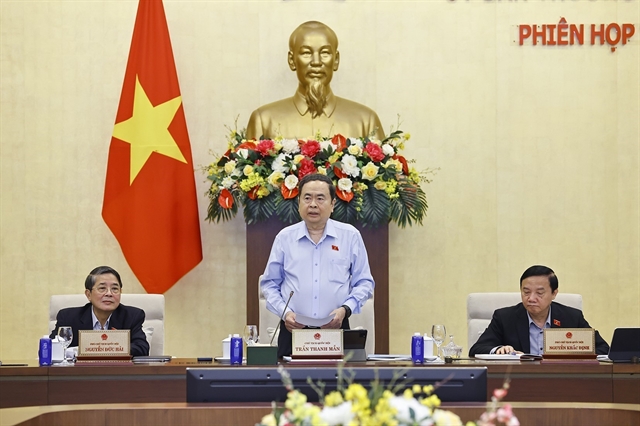
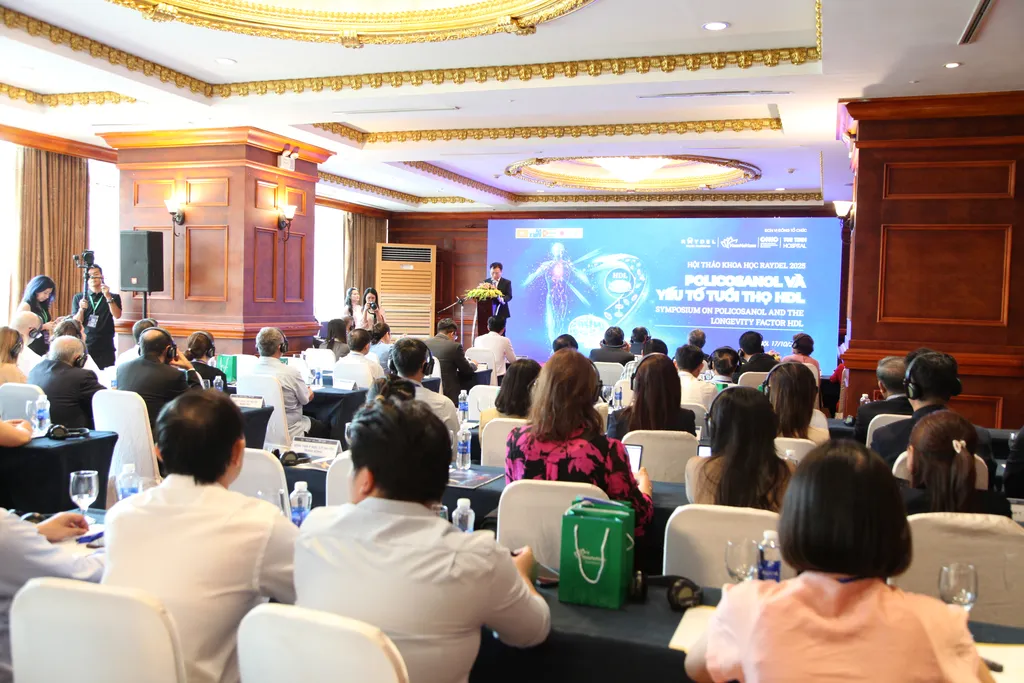 |
| Experts from Việt Nam and Cuba convened at a symposium in Hà Nội on October 17 to explore the role of Policosanol in preventing heart disease and stroke |
HÀ NỘI — Experts from Việt Nam and Cuba have discussed new scientific findings on the prevention of heart disease and stroke, highlighting the potential of Policosanol and HDL (“good” cholesterol) in enhancing public health and longevity.
A symposium on cardiovascular and stroke prevention, quality of life, and longevity, titled “Policosanol and the Longevity Factor HDL”, was co-organised by Tuệ Tĩnh Hospital, Hasu No Hana Joint Stock Company, Cuba’s National Scientific Research Centre (CNIC), and Raydel Group.
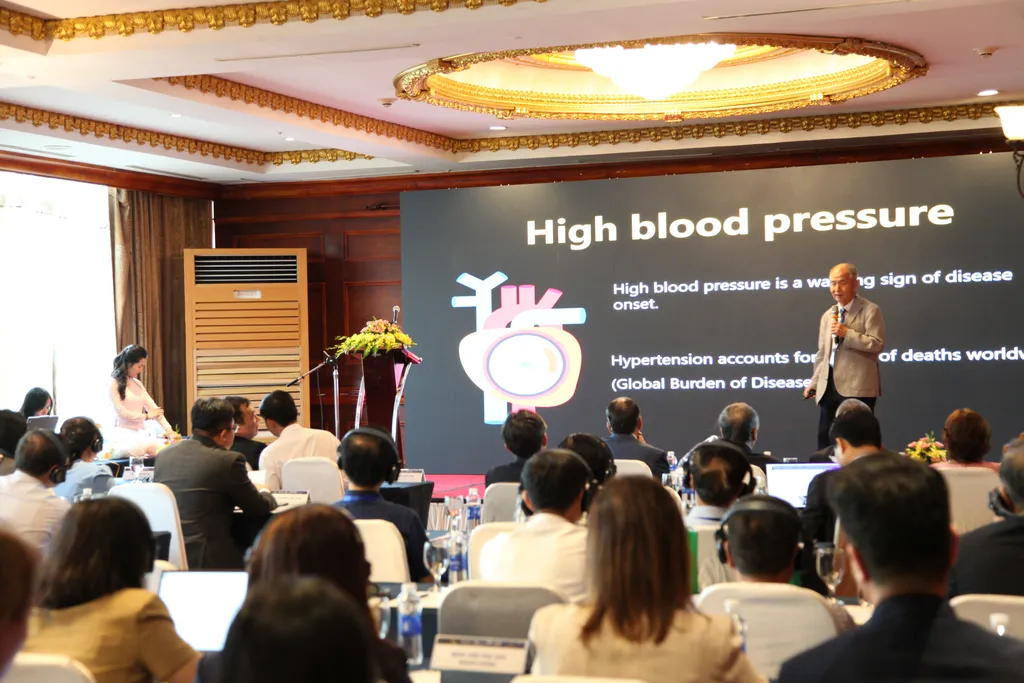 |
| Lee Byeong-gu, CEO of Raydel Korea Co. Ltd., delivered a keynote address on the role of Policosanol |
The event brought together Vietnamese and international scientists to share research outcomes, clinical experiences, and future directions in preventive medicine.
Speaking at the symposium, Trần Đức Hữu, Deputy Director of the Department of Traditional Medicine Management under the Ministry of Health, stated that the symposium held great significance for international medical cooperation.
Scientific updates on Policosanol
At the symposium, scientists from Cuba, Japan, and South Korea presented findings on Policosanol – a natural compound proven to increase both the level and quality of HDL cholesterol.
By enhancing “good” cholesterol, Policosanol helps reduce the risk of heart disease, chronic illness, and stroke.
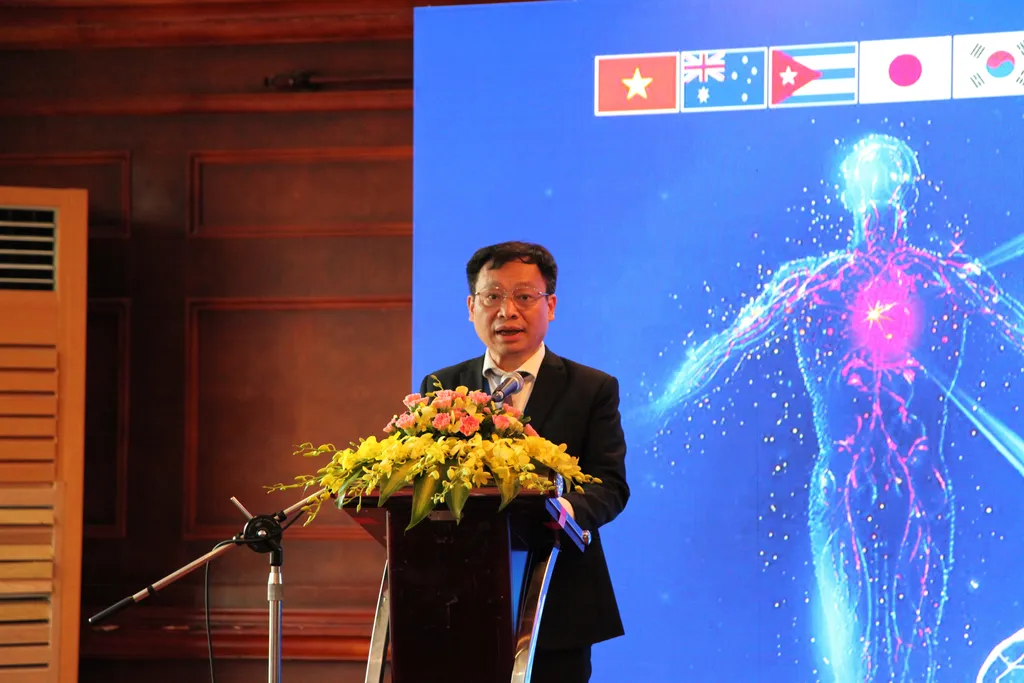 |
| Associate Professor Dr. Lê Mạnh Cường, Director of Tuệ Tĩnh Hospital, delivered the opening speech |
Associate Professor Dr. Lê Mạnh Cường, Director of Tuệ Tĩnh Hospital, emphasised that this is the first symposium in Việt Nam focused on this subject.
“It offers an important opportunity for doctors and researchers to update their knowledge about Policosanol and the role of HDL in promoting longevity,” he said.
“We all know that, as our country develops, health issues such as obesity, unbalanced diets, and metabolic disorders are becoming more prevalent. I believe this is a positive step forward, helping to mitigate these conditions and, of course, contribute to increasing life expectancy.”
“The hospital has also reached an initial agreement with CNIC and Raydel Group to jointly implement a resolution assessing the effectiveness of this active compound on the Vietnamese population,” he noted.
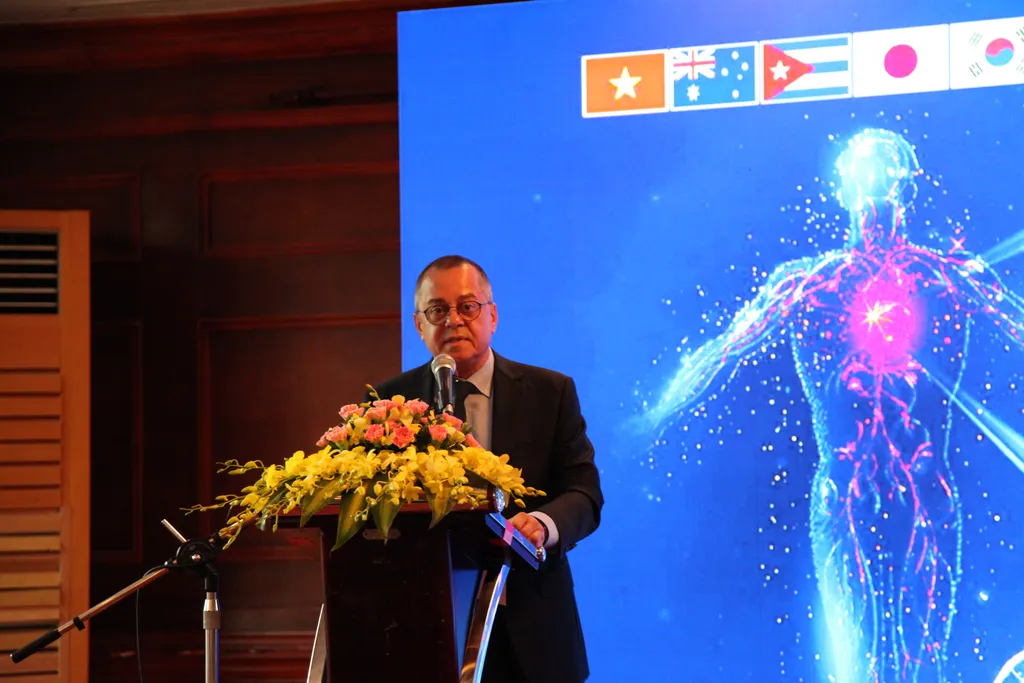 |
| Dr. Julio Alfonso Rubi, President of CNIC, shared insights into the centre’s findings on Policosanol |
Meanwhile, Dr. Julio Alfonso Rubi, President of CNIC – now part of the Cuban Biotechnology and Pharmaceutical Industry Group – shared insights into the centre’s scientific findings on Policosanol, emphasising its role in preventing heart disease and stroke.
Nguyễn Văn Giáp, Director of Hasu No Hana, said: “Policosanol is currently imported into Việt Nam at a relatively high cost and in limited quantities. Therefore, we hope to soon bring the technology for extracting Policosanol into the country, which would help reduce product prices in the Vietnamese market.”
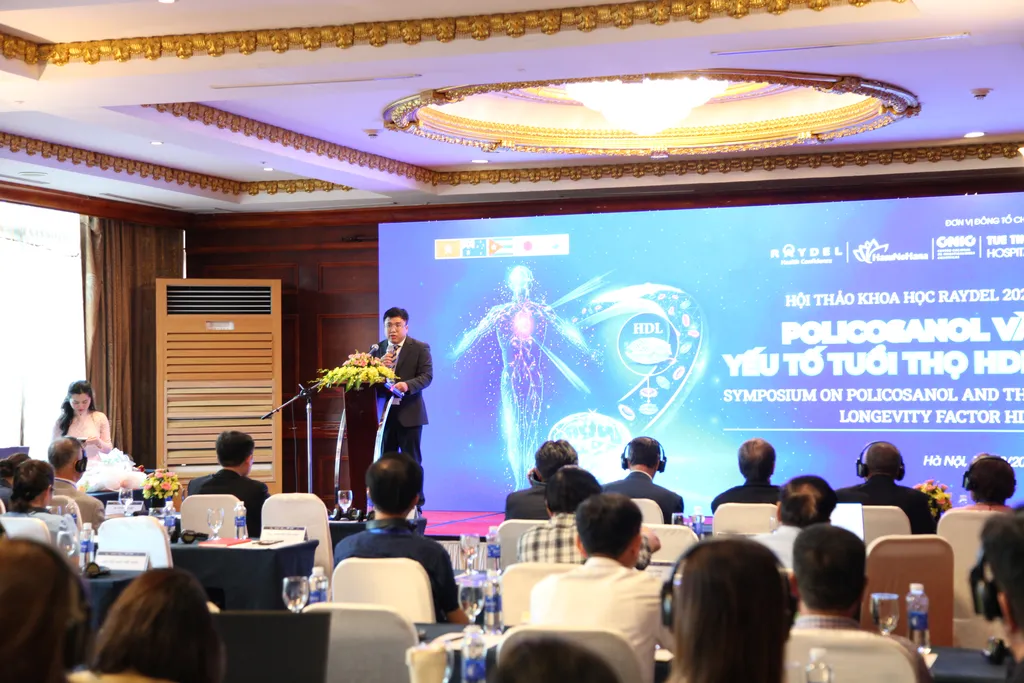 |
| Nguyễn Văn Giáp, Director of Hasu No Hana, expressed his intention to bring Policosanol extraction technology to Việt Nam in order to reduce product prices for the local population |
“We believe that lower costs will make it more accessible to the public and benefit people suffering from atherosclerosis caused by elevated blood fat or cholesterol levels,” he added.
Strengthening Việt Nam–Cuba medical cooperation
Cuban Ambassador to Việt Nam, Rogelio Polanco Fuentes, highlighted Cuba’s achievements in Policosanol research and its longstanding commitment to preventive healthcare.
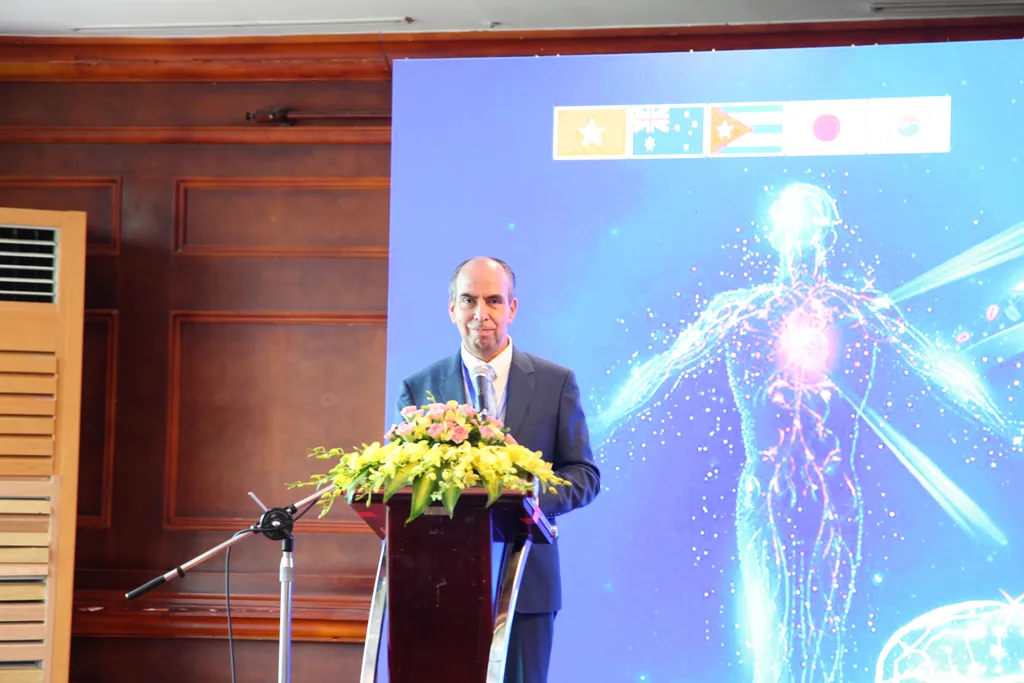 |
| Cuban Ambassador to Việt Nam, Rogelio Polanco Fuentes, highlighted the significant potential for collaboration with Việt Nam in health and pharmaceutical research |
“The Cuban Government always prioritises the development of community health and scientific research in order to create safe and effective medicines for the population,” he said.
Ambassador Fuentes added that Cuba sees great potential for collaboration with Việt Nam in health and pharmaceutical research. He affirmed that Cuba is ready to send Cuban doctors and experts to work in both public and private healthcare institutions across Việt Nam.
Recently, Việt Nam and Cuba established a joint venture in pharmaceuticals and biotechnology to develop, produce, and commercialise advanced Cuban biotechnological products. These innovations aim to serve the healthcare needs of the Vietnamese people and expand exports throughout the region.
Earlier the same day, a delegation from CNIC and Raydel Group visited the Vietnam Academy of Traditional Medicine and Tuệ Tĩnh Hospital.
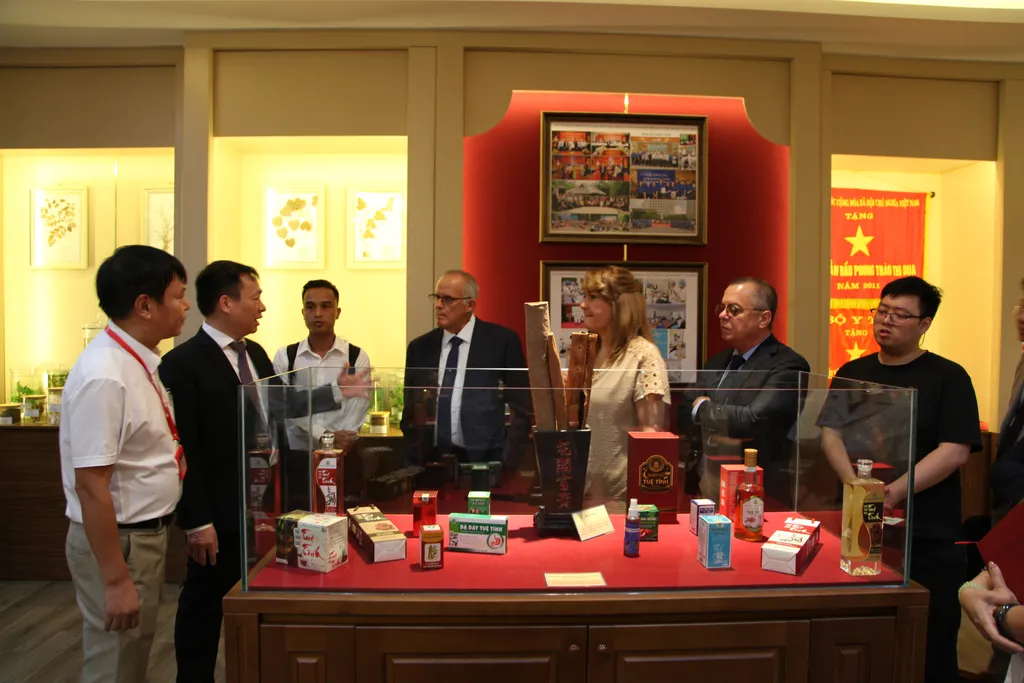 |
| A delegation from CNIC and Raydel Group visited the Vietnam Academy of Traditional Medicine and Tuệ Tĩnh Hospital |
Receiving the delegation, Dr. Lê Mạnh Cường, who is also the Deputy Director of the Vietnam Academy of Traditional Medicine, stated that the hospital is currently conducting clinical research on the use of Policosanol for patient treatment in Việt Nam. He asked CNIC and Raydel Group to support the hospital in carrying out this research project.
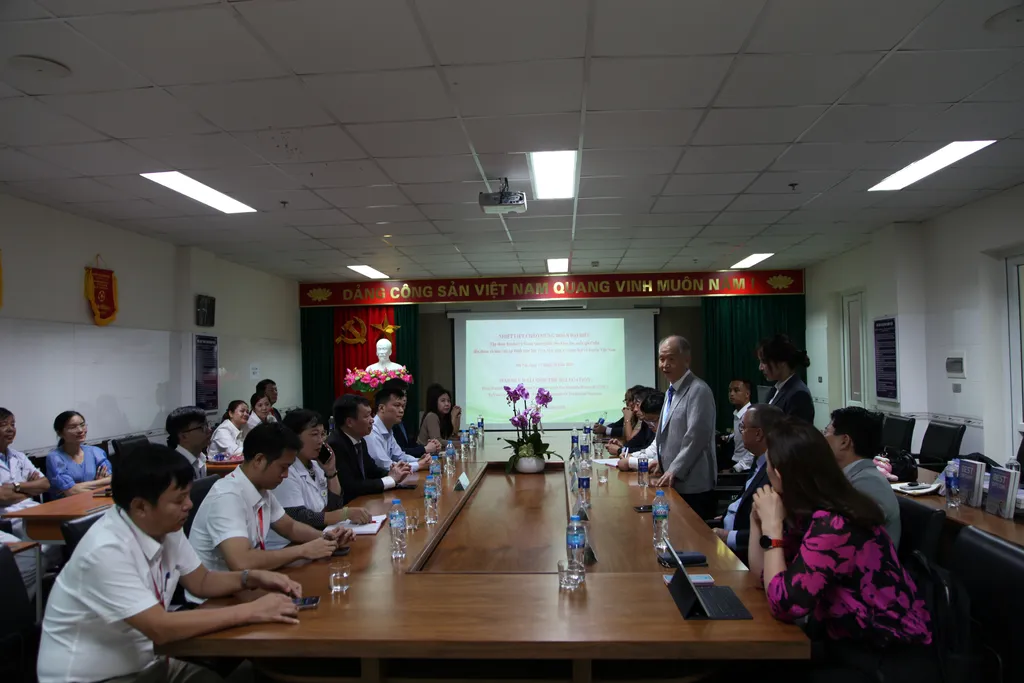 |
| Lee Byeong-gu, CEO of Raydel Korea Co. Ltd., committed to sharing the results of their clinical research on Policosanol to support the hospital's research team |
In response, leaders of both CNIC and Raydel Group committed to sharing the results of their clinical research on Policosanol to support the hospital’s research team.-VNS




